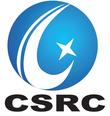Focus & Objectives
- Details
- Hits: 1057
FOCUS
The focus of the ICMMES Conference series is on mesoscopic/kinetic methods for computational mechanics in its broadest sense and the computational mathematics and algorithms required for these new methods. The new methods and algorithms will enable us to carry out challenging large-scale scientific computations for systems of great significance in science and engineering. Specific application areas of mesoscopic/kinetic methods include, but are not limited to:
- Computational Fluid Dynamics (CFD), including Direct Numerical Simulations (DNS), Large-Eddy Simulations (LES), and turbulence based on kinetic approach;
- Rheology for complex fluids, such as suspensions, multi-phase and multi-component fluids, non-Newtonian fluids, smart fluids such as electro-rheological (ER) and magneto-rheological (MR) fluids;
- Biologic-fluids, Lab on a Chip systems, and microfluidics;
- Micro/nano-scale phenomena involving non-continuum, surface-dominated, low-Reynolds-number, non-Newtonian, multi-scale and multi-physics effects;
- Thermal-chemically nonequilibrium flows with March-number and/or Knudsen-number effects, and reactive flows;
- Computational mechanics of solids and structures;
- Computational multi-physics dynamics, such as flow-structure interactions;
- Computational mathematics and algorithms for High Performance Computing (HPC) and tailored for challenging applications;
- Novel computational hardware for large-scale scientific computing including GP-GPUs, FPGAs, etc.
OBJECTIVES
The objectives of the ICMMES Conferences are
- to bring together researchers and practitioners from academia, research institutions and industry to exchange experiences, disseminate up-to-date information and explore new opportunities in the field
- to expose young or new researchers to the state of the art in the field by lectures and short courses of top international experts
AREAS OF INTEREST
The conference will focus on computational methods for challenging engineering problems based on mesoscopic methods, including (but not limited to) the lattice Boltzmann equation (LBE), lattice-gas cellular automata (LGCA), discrete velocity models (DVM), gas-kinetic schemes (GKS), dissipative particle dynamics (DPD), and smooth-particle hydrodynamics (SPH).







